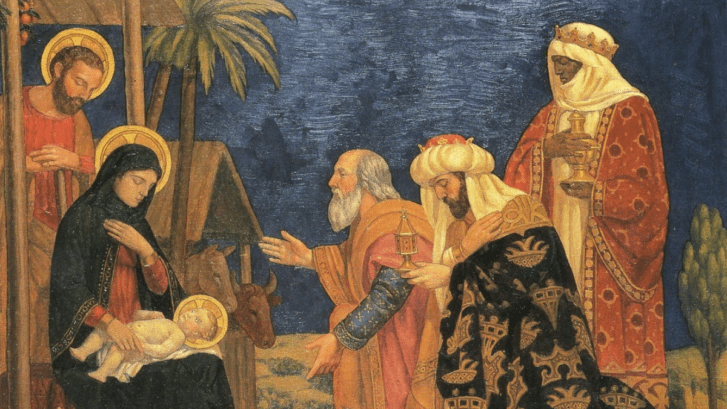Seekers and Outsiders
This feast of the Epiphany has always been among the favorites of many people, especially in Latin cultures like Italy and South America. We like to see the Wise Men’s appearance at the crib, with their elegant clothes and precious gifts. It is all so Eastern and exotic.
St. Matthew spends a great deal of time on this story. I think he did so because the Wise Men represent for Matthew two things. First of all, they are outsiders who did not ‘belong.’ They were not Jews. They were not people of the Covenant. No, they were from a faraway land, a different tradition. They were not to be trusted by the locals. They were not like us.
Do such outsiders exist today? Yes. A young man in recovery told me how he almost killed a “Phillipine guy” because another addict said that this “guy’s” people had caused the 9/11 attacks. He said, “That guy was different from us. That skin, their eyes, their clothing, who can trust them? To me, he was an outsider, not American.” It was only at the last moment when I saw the Crucifix on a chain around his neck.
At the crib there were no outsiders, no racism, no beatings. Jesus received them all ox, ass, shepherds and Magi. Poor and rich, Jews and Gentiles, He came for them all. He would reject no one and accept the unique gifts of all. What a pity if His followers do not always treat outsiders as He did. It is really part of the Gospel. That is why Matthew included it.
Secondly, the Wise Men are seekers. They traveled the desert in doubt. They were not sure what they were looking for. Reading the stars, making inquiries, perhaps, at the end, there would be nothing. But they continued the journey. A teacher at the Catholic school once said to me, I feel like a hypocrite. I doubt so much about the faith and the Church. My ear caught the word “hypocrite” because I knew many people felt that way. They are confusing the term with seeking. Real hypocrisy means people not only do not practice what they preach, but they are calculating about it. Seekers are different. They practice what they preach, but not out of total conviction, or maybe minimal conviction and comfort. They say prayers, go to Mass, but still have some genuine difficulties. They just go through the motions, have difficulty with the practice of faith or just the faith itself, or perhaps feel spiritually lifeless.
The seeker might say, “How can I believe in a God who allows children to be shot in school.” Or “My spouse left me, my parents were killed in a car accident, my prayers go unanswered. I pray but it is like talking to myself. I go through the motions. I go to church, receive Communion, but I am just not sure. I feel empty, dried up, what am I doing here? I feel like a hypocrite.”
This is not hypocrisy. This is a journey and searching. This is the discipline of keeping up appearances, not to deceive. It is a test, not to win applause, but to win some sign from God that He is there and that He cares. This is a journey for the spiritually numb, hoping for a thaw. This is quiet, joyless duty of someone going through what the great saints called the “dark night of the soul.” These are people trying to be faithful, even when they do not get anything out of it. Such people are not hypocrites. They
are searchers after Truth. They are beloved by God. They are Magi seeking and they are Magi accepted. Matthew wants us to know that.
So this familiar story turns out to be our story, which is why it has such appeal. These Wise Men are outsiders and seekers. Their journey was over. They found what they were looking for. They entered the stable in silence, for words could not express what they had found. They knelt and looked into the face of the Messiah. And so will we.


